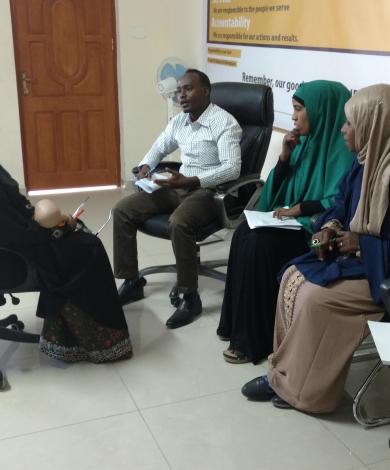Background
The Nutrition in Emergencies Regional Training Initiative is led by the UCL Institute for Global Health (IGH). An ENN/IGH collaboration developed to meet the need for an increased availability of high quality professional training in emergency nutrition. With financial support from OFDA, IGH developed a 2 week short course in NIE that was designed to strengthen the capacity of nutrition professionals, as well as to build the nutrition literacy of other humanitarian staff.
Project summary
The NIERTI course provides intensive training in nutrition surveys and assessments, food assistance, micronutrient interventions, management of acute malnutrition, infant and young child feeding in emergencies and emergency preparedness. It also includes modules on the humanitarian system, standards and monitoring and evaluation. The course culminates with an emergency simulation exercise that gives participants the opportunity to practise what they have learnt. The technical content of the course is based on the Harmonised Training Package.
Following pilot testing of the course, the NIERTI Short Course Training Package was developed, which includes a comprehensive guide for setting up, running and evaluating the course, a manual for course participants, a set of generic teaching materials and the emergency simulation guide. The courses are currently delivered by IGH's training partners (the American University of Beirut in Lebanon, the Asian Disaster Preparedness Center in Thailand, and the University of Makere in Uganda) and taught by experts in the field of emergency nutrition.
For further information about the NIERTI, the Training Package or how to establish a NIERTI-approved course, please email: nierti@nietraining.net.
The dates and locations of NIERTI-approved courses are advertised on the initiative's website.


